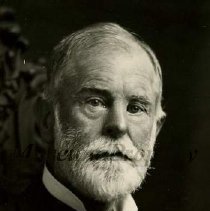Person Record
Images

Metadata
Name |
Sherman, Hoyt |
Occupation |
Postmaster of Des Moines from 1849-1853 Elected Clerk of the Distirct Court in 1853 Senior member of the banking house of Hoyt Sherman & Co. in 1854 Appointed Army Paymaster in 1861 by Abraham Lincoln Served as State Legislator in the 1860s Helped found Pioneer Lawmakers' Association in 1886 CEO of the Associated Charities of Des Moines |
Notes |
Hoyt Sherman Place is one of the few historic homes in Des Moines. The home was originally built as a private residence for Major Hoyt Sherman, a significant figure in the history of Des Moines. Born in Ohio in 1827 to Ohio's Supreme Court Judge Charles R. Sherman, Hoyt Sherman was the youngest son of eleven children. His family included older brothers, John Sherman, the writer of Sherman Anti-Trust Act, and Civil War General William Tecumseh Sherman. Hoyt Sherman arrived in Des Moines in 1848 when it was still considered far out in the western frontier. A year later, he was admitted to the bar and began to practice law and engage in real estate. He became postmaster from June 1849 to 1853 until he resigned and was elected clerk of the District Court. In 1854, he was the senior member of the banking house of Hoyt Sherman & Co., and became cashier of the Des Moines branch of the State Bank of Iowa to supervise the system and guard public interests. In 1861, President Abraham Lincoln appointed him the Army Paymaster at the start of the Civil War, with the rank of Major. After the war, he served as legislator in the Iowa House before teaming up with others to create the Equitable of Iowa Insurance Company. The institution owes much of its stability and high standing to Major Sherman's reputation for integrity and skilled management. In 1866, Major Sherman was a member of the House of the Eleventh General Assembly where he was Chairman of the committee on railroads and a member of the committee of ways and means. In 1886, he was one of the founders, and most influential member, of the Pioneer Lawmakers' Association serving as president and member of the executive committee. Furthermore, he contributed valuable historical articles to the Annals of Iowa on "Early Banking in Iowa," and on the "State Bank of Iowa" and for many years was the chief executive officer of the Associated Charities of Des Moines. Hoyt Sherman Place, the family home he built for his wife Sara and their five children, was complete in 1877 with the help of architect William Foster. Almost immediately, it was noted in writing to be, "a society showplace of the grandest scale." Among its distinguished guests in history are General Sherman, General Grant, General Sheridan, and Major McKinley. In 1893, Hoyt Sherman rented his home out to The Sisters of Mercy from Davenport, Iowa. It is within the walls of the home that the Sisters created the first Mercy Hospital. It held 52 beds and operated for nearly two years. Hoyt Sherman was one of the founding fathers of Des Moines and credited for many of its firsts. He was a major influence in the insurance and finance industries, which still plays a significant role in the Des Moines economy. Today, the Des Moines area is an insurance hub, with more than 80 insurance companies and the highest concentration of employment in insurance and financial services in the United States. He passed away in 1904, but his legacy lives on through Hoyt Sherman Place. |
Born |
1827 |
Birthplace |
Lancaster, Ohio |
Deceased |
1904 |
Deceased where |
Des Moines, Iowa |
Father |
Charles R. Sherman |
Spouse |
Sara (Moulton) Sherman (m. 1855) |
Children |
Adaline Moulton Sherman Four other daughters |
Nationality |
United States |
Places of residence |
Lancaster, Ohio Des Moines, Iowa |
Caption |
Hoyt Sherman |
Relationships |
Hoyt Sherman was the youngest son of eleven children. His family included older brothers, John Sherman, the writer of Sherman Anti-Trust Act, and Civil War General William Tecumseh Sherman. |
Role |
Business |
Related Records
-

-
Lithograph - Hoyt Sherman Place Foundation
Statehood and the Civil War Era (1847-1868)
Record Type: Object
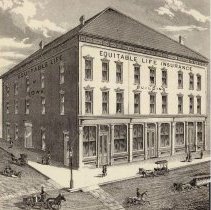
-
Mansion - Hoyt Sherman Place Foundation
Prosperity to the Depression (1897-1939)
Record Type: Object
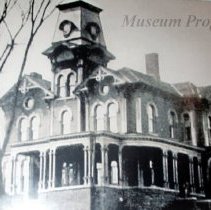
-
Photograph - Hoyt Sherman Place Foundation
Statehood and the Civil War Era (1847-1868)
Record Type: Object
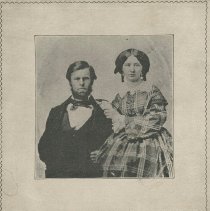
-
Photograph - Hoyt Sherman Place Foundation
Statehood and the Civil War Era (1847-1868)
Record Type: Object
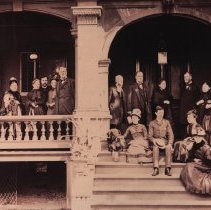
-
Print, Photographic - Hoyt Sherman Place Foundation
Statehood and the Civil War Era (1847-1868)
Record Type: Object
